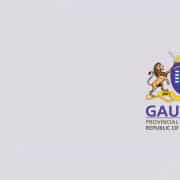|
Getting your Trinity Audio player ready...
|
In November 2014, the then premier of Gauteng David Makhura told an anti-corruption summit convened by his government in Midrand, Johannesburg, of plans to develop an ethics management strategy across all departments of the province. This was to build a corruption-free administration that values ethics and promotes an honest government. Underpinning such a strategy would be the appointment of ethics officers across all departments and other provincial government entities, who would act as custodians of the different phases of the strategy.
Eleven years later, Gauteng’s 14 departments and entities are largely compliant with the principles of the strategy, which is now fully in place, says the Gauteng Ethics Advisory Council (GEAC) Biennial report, but there is still a lot of ground to cover in some critical areas. The GEAC was established in 2017 to help usher in the process of developing the strategy and has been largely made up of individuals from civil society and academia. It has to date released two status reports, the first in June 2022 and the latest on 8 May 2025.
State of ethics
According to the new report:
- All 14 departments and entities have appointed ethics champions and officers.
- Nine of these have attended ethics officer certification, while the attendance for the rest is still pending.
- All but four have established ethics committees.
- Ten have complied with the ethics risk assessment of the GEAC, while three have only partially complied, and one has not done so at all.
- Eleven have so far fully complied with the strategy, while two have only partially complied and one has not done so at all.
- Finally, nine have complied with the ethics management implementation plan, while three have only partially complied and two have not done so at all.
The document further noted: “The appointment of ethics champions and ethics officers, as well as their certification through the Ethics Officer Certification Programme, has been affected by staff reallocation, promotions, transfers, or resignations. Consequently, the departments of education; economic development; roads and transport; sports, arts, culture and recreation; and treasury must ensure that officials responsible for ethics management are trained through the programme. Additionally, larger and high-risk departments must appoint and train a greater number of ethics officers.
“All departments could have complied with the requirement to appoint ethics committees. In some cases, this function may be fulfilled by the department’s risk management committee. However, some departments such as community safety, education, health, and infrastructure development will need to attend regular meetings to ensure that all ethics-related matters are adequately considered.”
The education department has been the worst performing across three areas, namely ethics risk assessment, ethics strategy, and ethics management implementation plan. Incidentally, it is also the department with the highest number of officials doing business with government, a practice that is outlawed in public service.
Business with state
GEAC chairperson Solomuzi Mabuza said in a recent interview with 702 that departments would have to conduct thorough investigations to determine the true facts of the cases of 152 officials noted in the report as doing business with the state. Of this total number, 124 are located in the education department. The report notes that an increase in the number of officials engaged in business with the state was recorded in three departments, namely education, human settlements, and infrastructure development.
Said Mabuza: “Investigations will actually give us the accurate information [such as] what is the nature of the business. [In some cases], MECs could have stakeholder representatives on boards of entities, but it might reflect as people doing business. So at this stage it is too soon to make any assumptions that these have been detected. We now expect the relevant state institutions to start investigating. Investigations must begin to happen, so departments need to finalise investigations so that appropriate action can be taken … the report has uncovered this, so further investigations are required.”
The council, said Mabuza, was tasked with consolidating forensic report findings that had been undertaken with other government institutions, to present them in the report. In another interview on Newzroom Afrika, Mabuza outlined the role of the GEAC, explaining that this is to oversee and then make recommendations to the executive council for consideration and implementation. They do not assume the functions of management as these remain the responsibility of the accounting officers and accounting authorities of departments.
Measuring ethics training
Busani Ngcaweni, principal of the National School of Government (NSG), commented on the topics covered by the report in an interview with the SABC, saying that the NSG has been part of ethics training across the Gauteng government.
He does, however, caution that in general ethics training has been done in a model that does not sufficiently cover all aspects of the public service, and this will change. “In the majority of cases, people we have trained on ethics and on how to manage supply chain and project management give us one significant feedback, which is that the culture of internal controls in the organisations that they come from is non-existent, which is why we are changing our model to focus on a model that is more of a system- or institution-wide intervention.
“Public servants will say ‘I have now trained to manage supply chain but I’m alone in a team of about 30 people’ and they’re arguing that their skills, the knowledge they have gained on how to manage procurement is insufficient for them.” The school now works with officials and MECs across provincial governments to cover all aspects of the departments’ work.
Accountability and consequence management, however, are still lacking. Some of the challenges that officials bring to Ngcaweni’s team during training include irregularities and interference in the tender system.
“It’s a reflection of the lack of accountability. If you are coaching a team and the team constantly loses season after season, there are consequences for that. You’ll lose your position as a coach and they will go and look for a new coach. In the majority of cases for us in the public sector there are no consequences so I may actually lose money as a head of department or may know officials in the department who cause the department or institution to lose money, but there are no consequences and sometimes it takes long. So therein is the problem. People are very efficient when they want to defraud the system, you know you can swindle the system in the fastest possible time, but when we should do things correctly, to provide a service, people tend to act very slowly.”
Ngcaweni added that public institutions move on from adverse reports and audit outcomes such as those from the Auditor-General, without consideration for their meaning in terms of service delivery, and then continue to make the same errors. Furthermore, the state of the public sector’s human resources system and its poor integration means that officials can cause harm in one institution and easily move to another, all the while escaping detection.
On procurement, he said, we must automate systems by using artificial intelligence to detect where problems and blockages are. “There is too much human interface and human interference in the management of the public procurement system and consequently, it means everybody could be seeking rent. At every point in the chain of procurement there are different individuals who are seeking rent and that is why you end up with projects that cost more than they should.”
The initiative that started under Makhura’s leadership just over a decade ago has gained ground, and although his successor Panyaza Lesufi has committed to releasing his government’s official response to the report, it remains to be seen what the accountability trajectory from this point onwards will look like.







